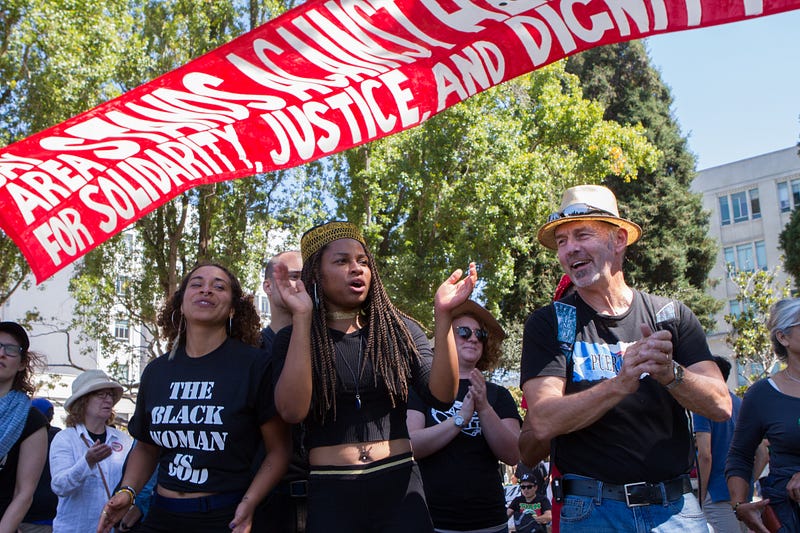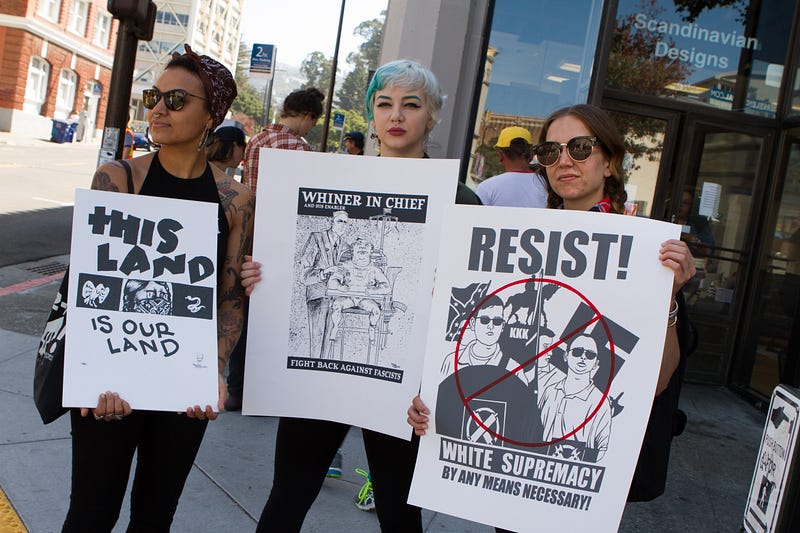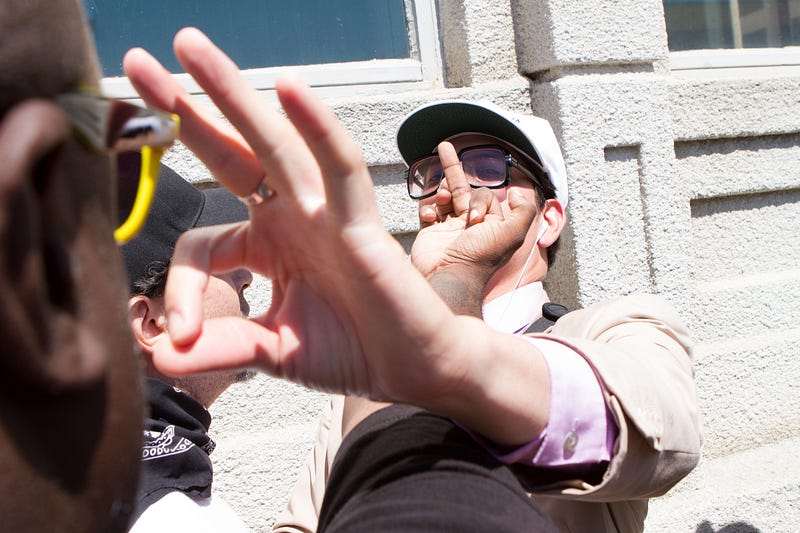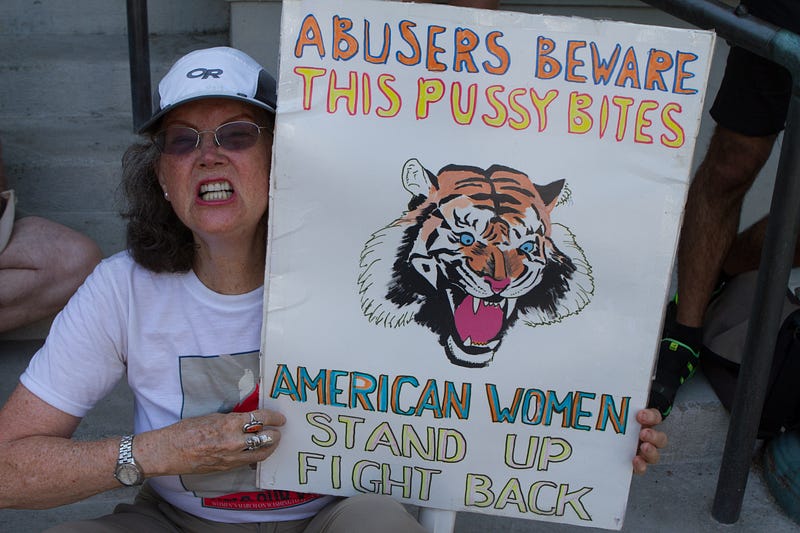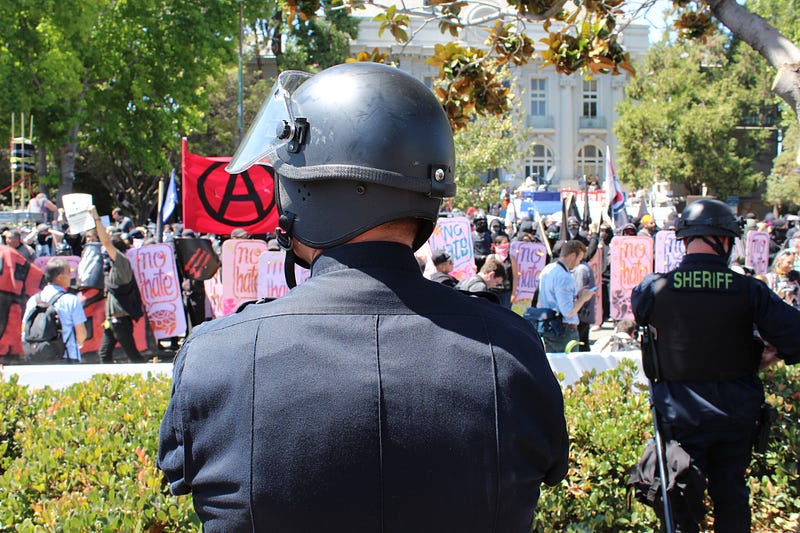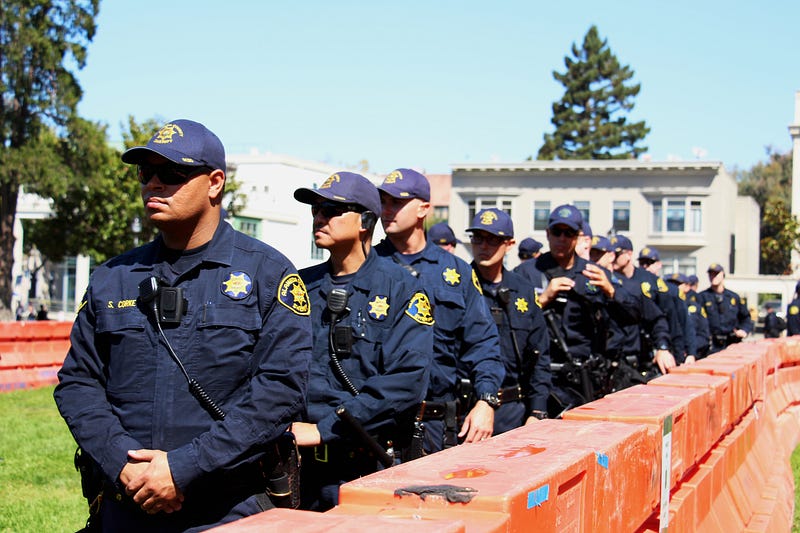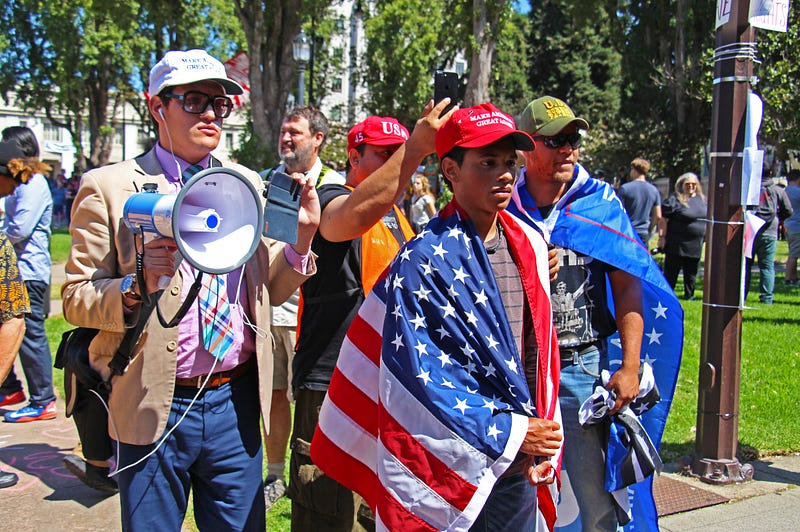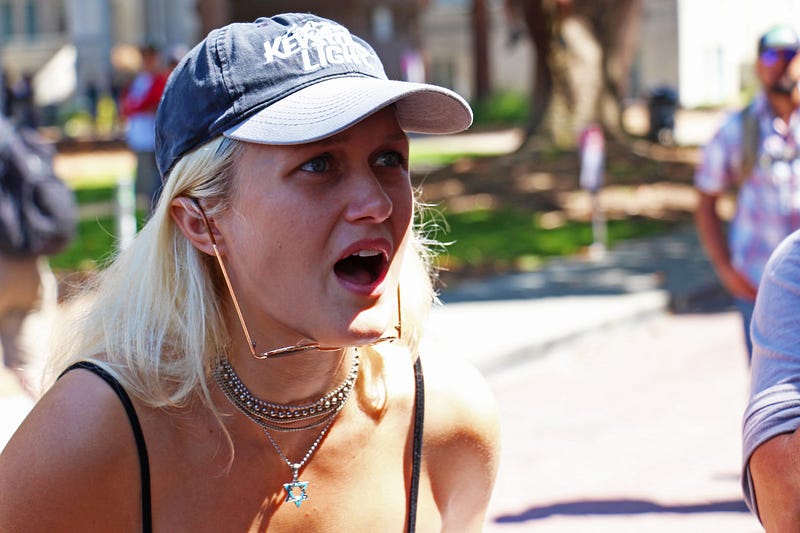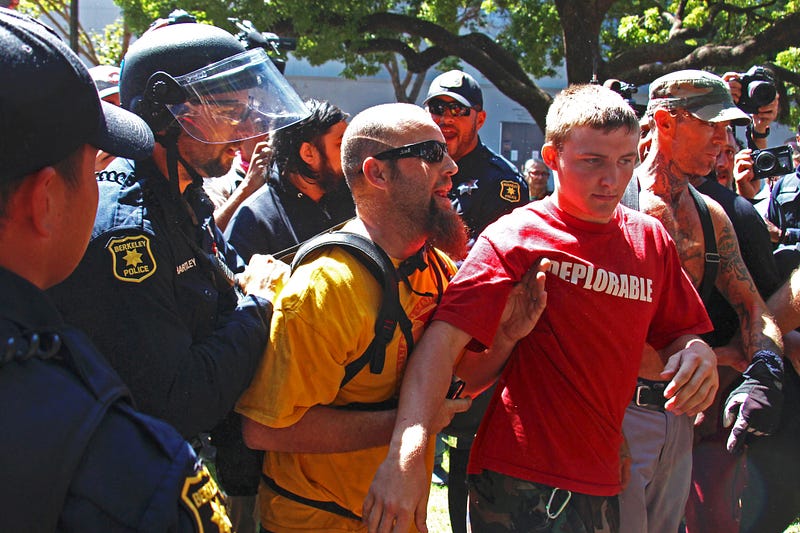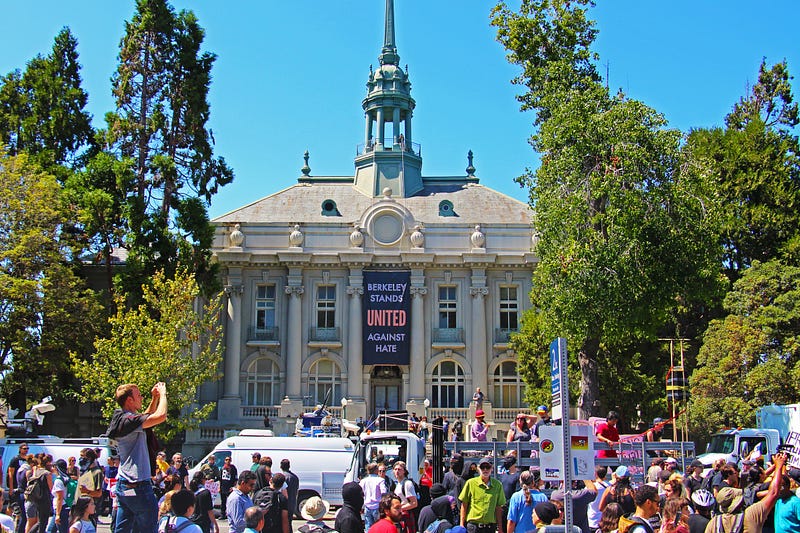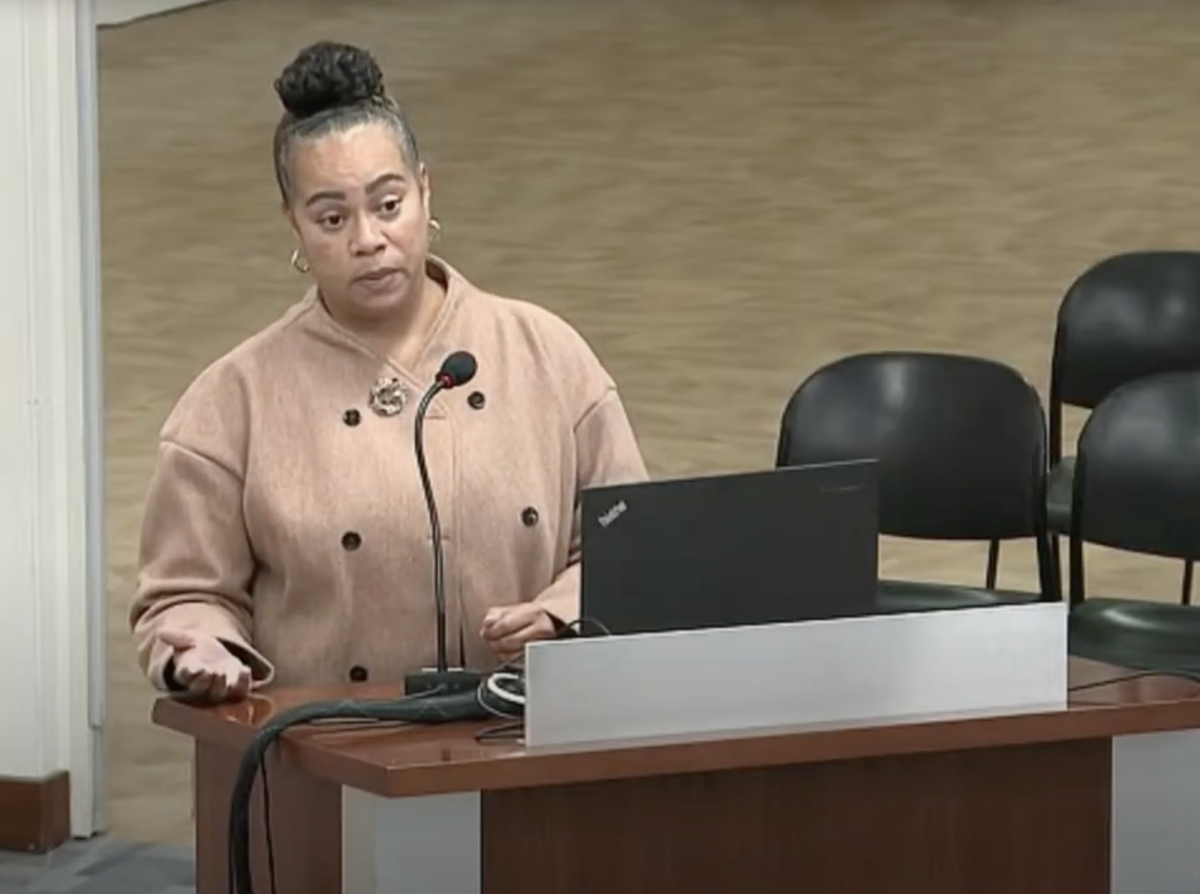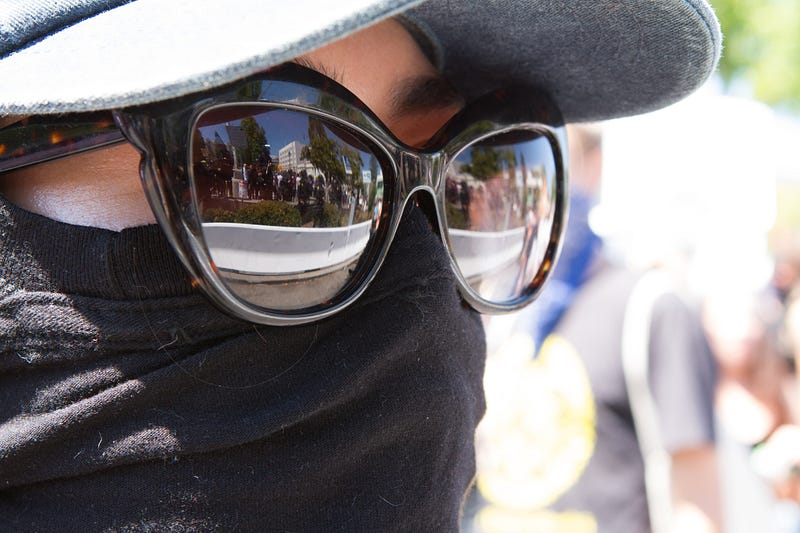
Despite cancellations of right-wing rallies in San Francisco and Berkeley, counter-protesters flood city streets in display of resistance
By John Marshall
Thousands of people poured into the streets of San Francisco and Berkeley over the weekend of Aug. 26–27, aiming to counter two distinct right-wing protests planned in either city.
A “freedom rally” was set to take place at San Francisco’s Crissy Field National Park on Aug. 26, organized by Patriot Prayer, an Oregon-based conservative advocacy group. According to the group, their goal is to advocate for freedom of speech.
Leading up to the event, Patriot Prayer’s leader, Joey Gibson, announced that they had no ties to white nationalists or other extremist groups, though it has allowed white nationalists to speak at its rallies.
While more than 400 people had signed up on Facebook to attend the Freedom Rally by Aug. 25, thousands had signed up to attend counter-protests on Facebook pages for those events. This led to Patriot Prayer announcing on Friday that the event was cancelled.
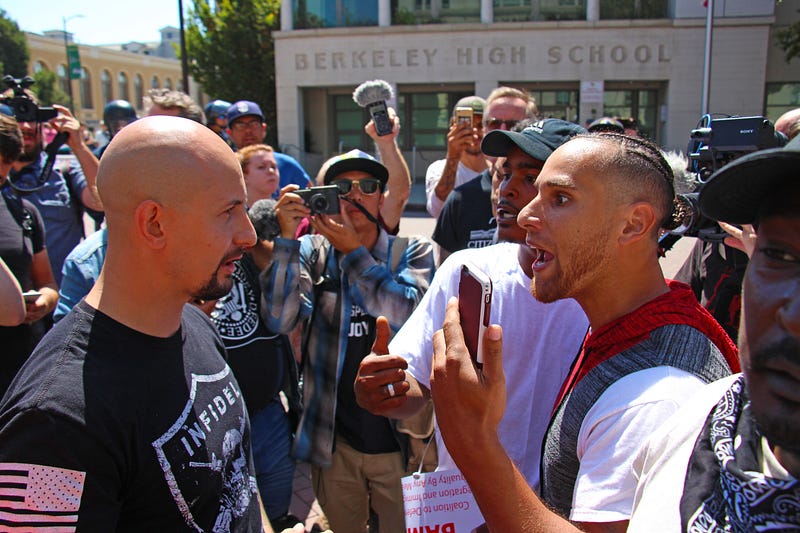
A similar series of events played out in Berkeley the next day. A right-wing protest called “Say No to Marxism in America” set for the morning of Aug. 27 had garnered enough to attention to spawn a counter-protest, but was cancelled just before the weekend began.
By 10:45 a.m., just after the counter-protest, called “Bay Area Rally Against Hate,” set to begin, more police were present than protesters at UC Berkeley’s Crescent Lawn, where the rally was being held.
Around 11:30 a.m., the crowd grew, with different sub-groups joining in, including the Peralta Federation of Teachers, the teachers’ union for the Peralta Community College District.
“As educators and teachers we stand for full human rights for all people… and commit to upholding these values in our classrooms, on our campuses, and in the larger community,” PFT President Jennifer Shanoski wrote in a letter to PFT members, endorsing the rally.
One of the roughly 25 PFT members that were present at the rally, Matthew Goldstein, a professor at the College of Alameda, said it “was really important to PFT that the union be part of a peaceful show of unhappiness with the rise of white supremacy.” The PFT demonstrators were happy with how Berkeley handled the demonstration and said that everything ran smoothly before they left at around 12:30 p.m.
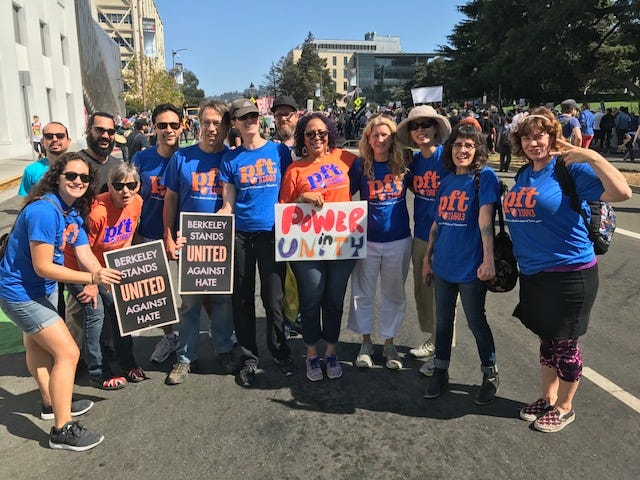
By that time, Oxford and Addison Streets were covered with over 1,000 protesters. Fencing them in on the streets were garbage trucks and police cars, a safety precaution and nod to the violence that had taken place in Charlottesville, Virginia weeks earlier, when a right-wing protester drove a vehicle into a crowd of counter-protesters, killing one and injuring many.
Demonstrators slowly began to organize and march their way to Martin Luther King, Jr. Civic Center Park shortly after 12 p.m., carrying large banners with “Bay Area Against Hate” printed on them and chanting “No Trump, no KKK, no Fascist USA!”
All in all, only about a dozen or so right-wing protesters appeared at that day’s event. One of them was Johnny Benitez, a member of the Southern Californian group Latinos for Trump, and a well-known far-right figure.
Benitez was eventually chased off around 1 p.m., as a subgroup of masked protesters clad in black formed on the edge of the park. Often referred to as Antifa by both media organizations and some of these protesters themselves, they let their presence be known by throwing purple smoke bombs, hopping police barricades, and taking over the park.
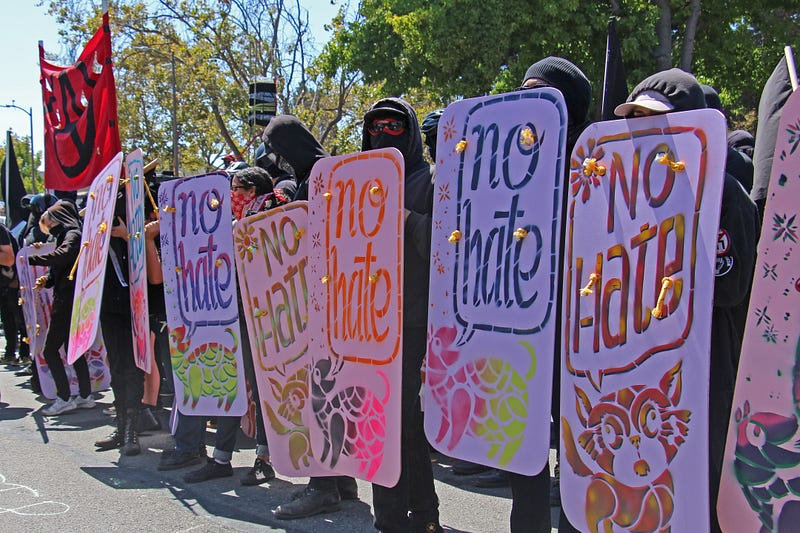
“My family, on both sides, are survivors of genocide,” one self-identified Antifa member said during the protest. “On my mom’s side, they survived colonialism. On my father’s side, they survived the Holocaust.”
Although media sources contest the group’s ideology as well as whether the group is a coherent collective at all, the Antifa member described Antifa as a “communal movement… about protecting and defending and honoring freedom and self-determination.”
The Antifa member made clear that although the tactics Antifa employed might seem “intimidating,” she didn’t consider Antifa as violent. “Antifa’s politics are a response to violence,” the member said. “It’s that there has been systematic violence that has been imposed on the average human that has become normalized.”
Lifelong Berkeley resident Fred Dodsworth, though not a member of Antifa, was present throughout the afternoon. “I support Antifa,” he said, vocally supporting the anti-fascist ideology of the controversial group.
He said he also felt he and his fellow Berkeley residents “moral responsibility to stand against oppression” and “the fact that there are so few of them and so many of us says something really profound.”
Scroll down for more photos

